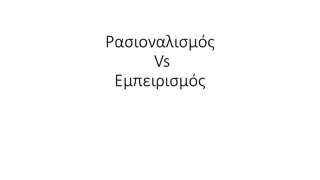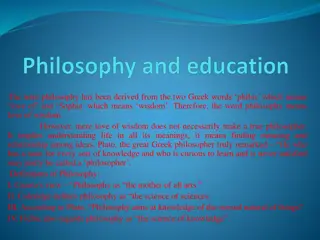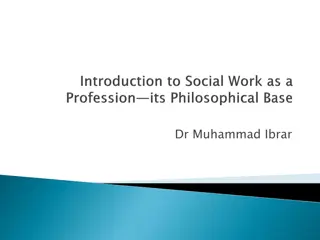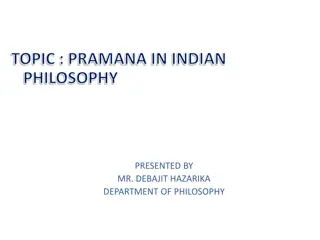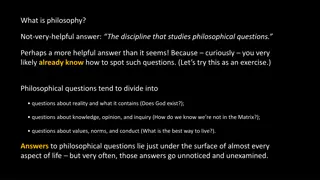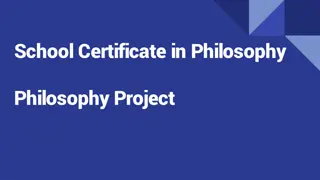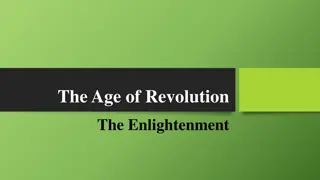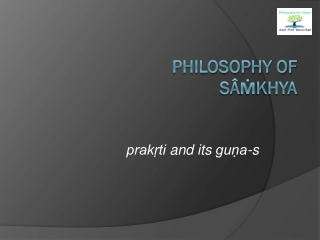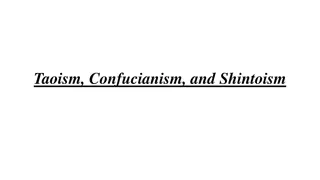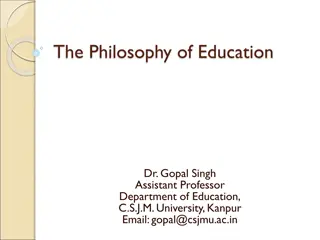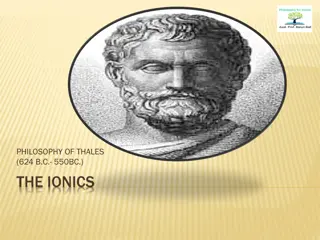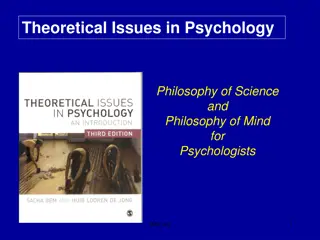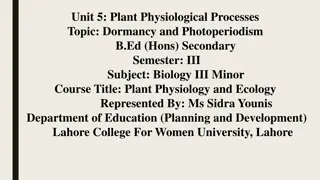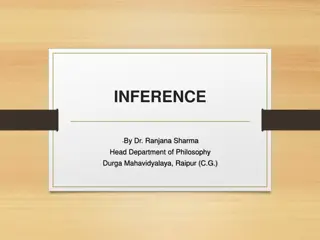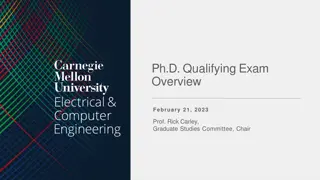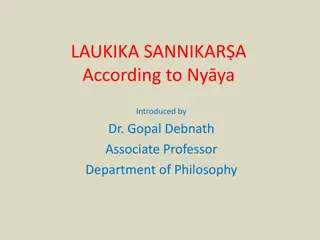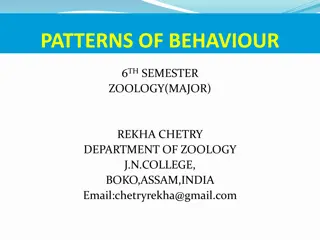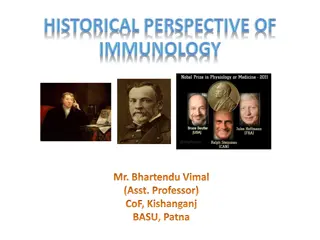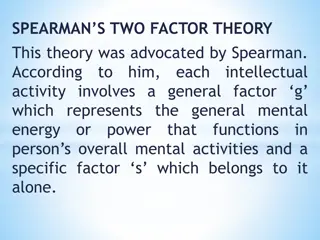Understanding John Locke's Philosophy on Knowledge and Innate Ideas
John Locke, a prominent philosopher, delved into the concept of knowledge, emphasizing certainty and instructiveness. He defined knowledge as perceiving connections or disparities of ideas, distinguishing between innate ideas and those acquired externally. Locke believed innate ideas were not universally present and emphasized empirical observation over introspective analysis. His ideas challenged the notion of innate knowledge and laid the foundation for empiricism in understanding the world.
Download Presentation

Please find below an Image/Link to download the presentation.
The content on the website is provided AS IS for your information and personal use only. It may not be sold, licensed, or shared on other websites without obtaining consent from the author. Download presentation by click this link. If you encounter any issues during the download, it is possible that the publisher has removed the file from their server.
E N D
Presentation Transcript
John Locke was born at Somerset on 29th August 1632 Educated at Oxford Chief work was Essay Concerning Human Understanding Raised the question of Epistemology Concerned with origin of the furniture of mind Introduced historical method in philosophy
Knowledge Proper is certain, instructive and real Locke was not a sceptic With me to know and to be certain is the same thing, what I know that I am certain of and what comes short of certainty, I think cannot be called knowledge Knowledge should also be instructive as opposed to trifling information Any knowledge is real as it must refer to and hold good of the actual state of affairs
Locke defined knowledge as the perception of the connection or repugnance of ideas Ideas may mean a mode of individual consciousness a subjective modification without any necessary reference to objective things An idea may mean a representation of something other than itself
By innate ideas, Locke understands, ideas which the mind simply finds in itself, as distinguished from those ideas which it receives from outside or those which it creates within itself They are supposed to be directly imprinted on the mind by God and as such enjoyed certainty and authority which no other ideas could claim They rested on universality as the indubitable test of their innateness
No principles are present in the mind from birth No universal laws are found in the mind of insane, children, idiots No moral principles are universally accepted by all nations The idea of God is relative and conflicting and whole tribes exist without the idea of God
Denial of innate ideas does not imply denial of truths of science, morals and religion Locke gave a basis sounder than that of mystical belief in innate ideas Universal knowledge can be explained by the thesis of empiricism Knowledge of the world around us comes from actual observation of it and not introspective analysis of furniture of the mind


